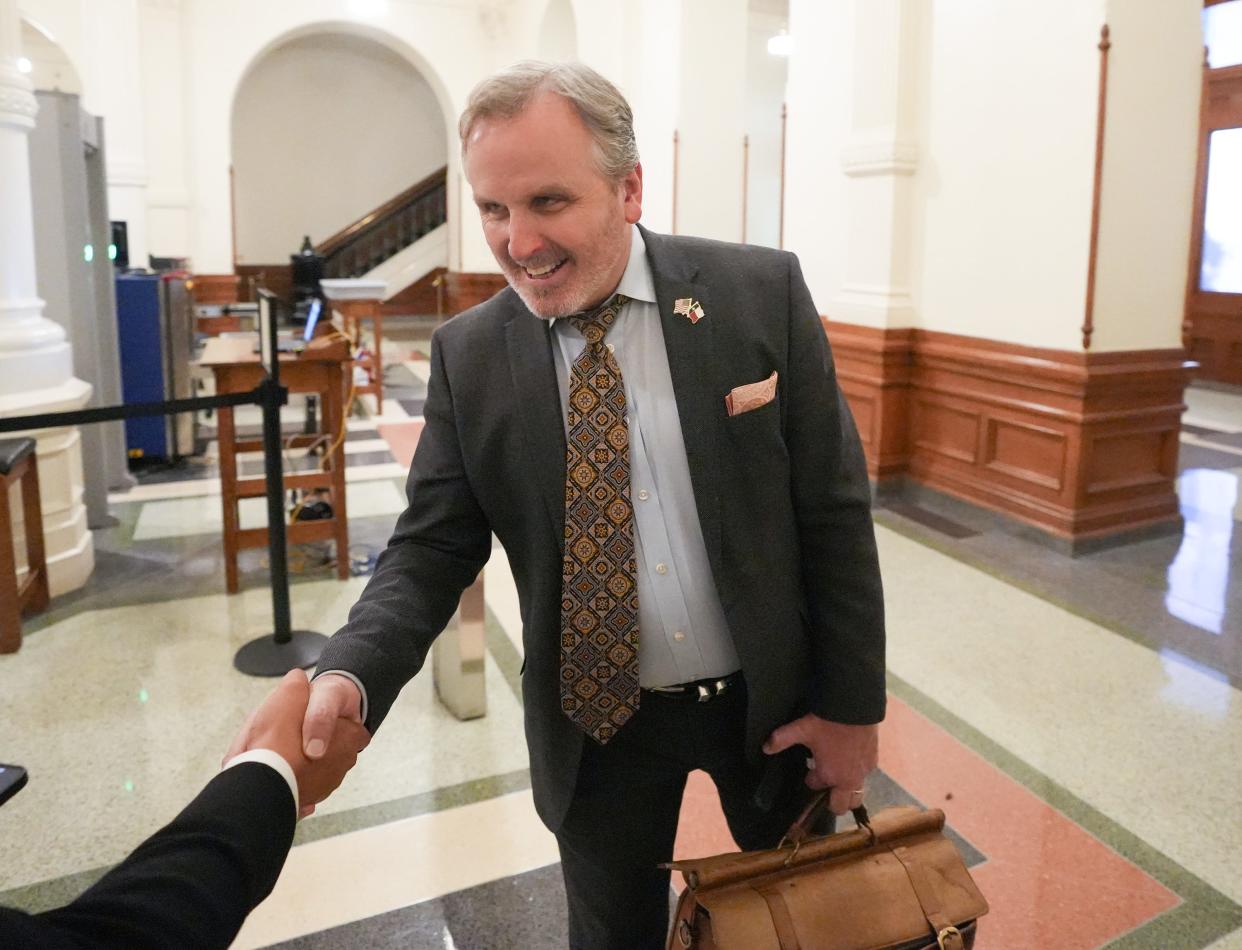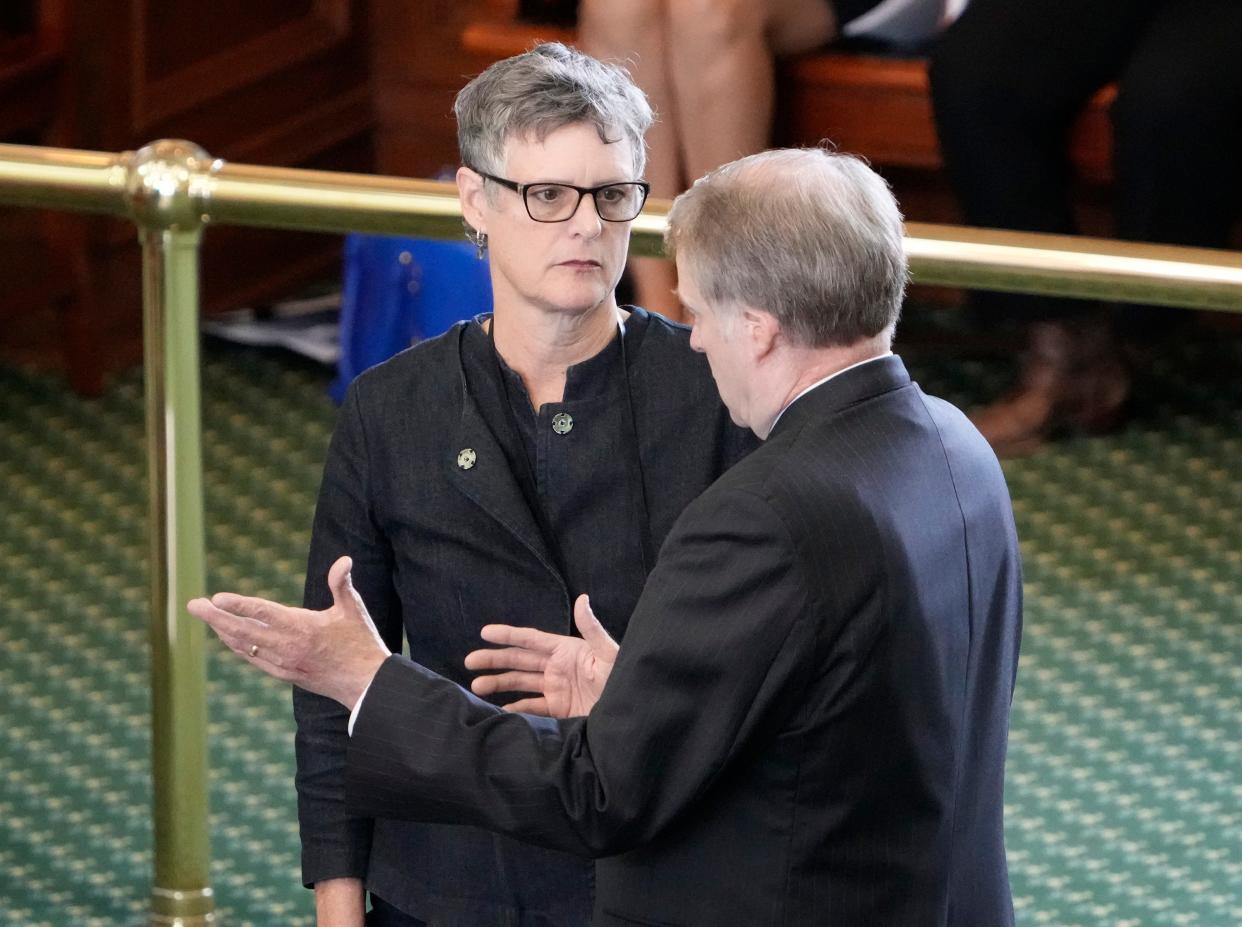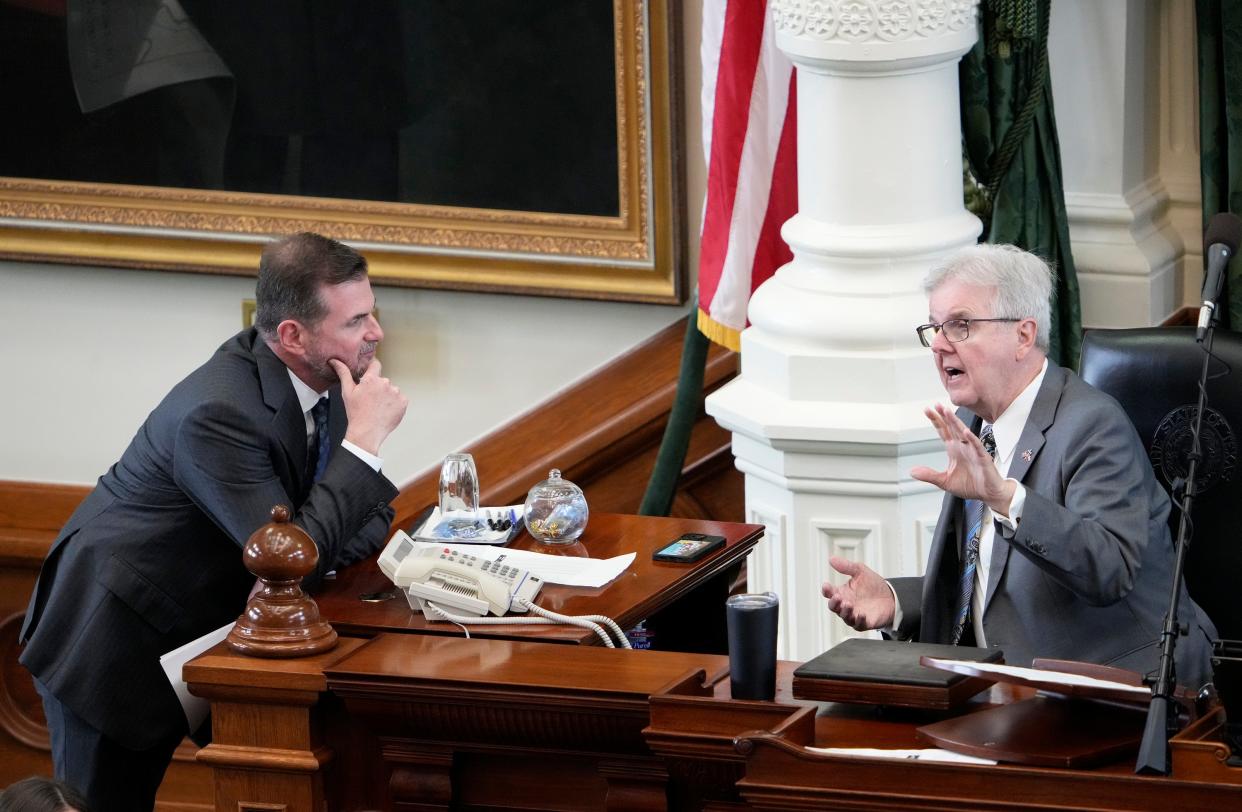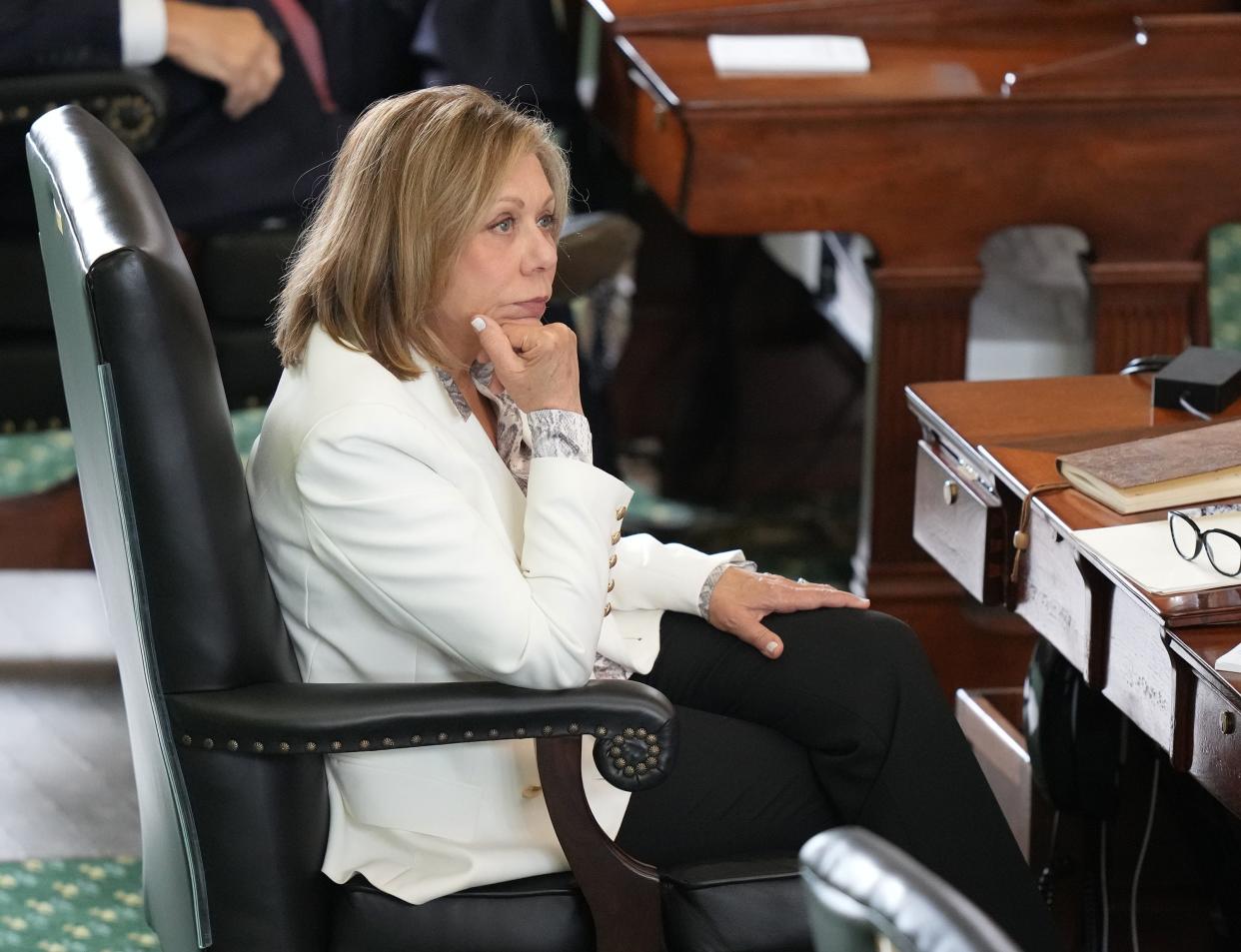$1.5 billion for Texas border wall, $800 million for school safety approved by state Senate
The Texas Senate quickly advanced measures Friday to fund school safety initiatives, shorten the timeline for court challenges to election results and give final approval to a $1.54 billion allocation for border barrier construction.
In two impromptu committee hearings, senators advanced Senate Bill 5, an $800 million proposal for school hardening projects and safety grants, and Senate Bill 6, a response to lawsuits challenging the results of the November election, which could delay property tax cuts and retired teacher benefits approved widely by voters.
A new proposal mentioned for the first time on Friday, SB 6 would shorten the time for setting a court date for an election contest from 180 days to 50 days and place parameters for when a final ruling must be made and when further appeals must be filed.

Authored by Sen. Bryan Hughes, R-Mineola, the legislation is an attempt to counteract six lawsuits filed after the Nov. 7 election that claim voting systems and machines used during the election did not meet state and federal standards.
"Nothing in Senate Bill 6 affects the rights of the people that file the election contest," Hughes said on the floor, shortly after the bill advanced from the Senate Committee on Jurisprudence. "We're not changing the rules for what they have to prove or anything else; what we are doing is saying to the courts, we have to hear this case quickly."
Senators express concern for election lawsuit bill's possible impact on funding for retired teachers
The concern, Hughes and Sen. Robert Nichols, R-Jacksonville, argued before the bill advanced from the Senate, is the potential for statewide property tax cuts and a cost-of-living adjustment for retired teachers to be delayed for months by a lengthy judicial process.
A previous ongoing election challenge initiated in 2021 prompted the fear that the broader measures held in constitutional amendments passed by voters in 2023 could be held over by the courts, causing a ripple effect for both Texans expecting the tax relief and the state and local agencies preparing to comply with the new laws.
"Because this is so time sensitive, because those constitutional amendments affect so many people all across the state, it is our intent to speed up the process," Hughes said.

While agreeing that a handful of largely unfounded election complaints should not get in the way of the constitutional amendments passed by voters, Sen. Sarah Eckhardt, D-Austin, felt the bill that landed on her desk only an hour before its final vote in the Senate might hold unintended consequences after the expedited process.
"I think that we should have trust in our judiciary that they would recognize the weight and consequence of dragging this out and act expeditiously," Eckhardt said.
After a series of questions from Eckhardt to Hughes on the origins of the bill, the need for changing the timelines and the relationship between the legislative and judicial branches, Lt. Gov. Dan Patrick instigated a testy moment, largely rebuffing the Austin Democrat's concerns.
"We needed to act today," Patrick said in his return to the dais after a viral pneumonia diagnosis in November, telling Eckhardt to "have a merry Christmas."

Patrick went on to say the bill is not currently on Abbott's special session call, but if passed by both the House and Senate, it would be the governor's prerogative to sign it.
"We are acting quickly because the session ends the middle of next week," Patrick said of the year's fourth called session scheduled to end Wednesday.
Abbott's office did not respond to an American-Statesman request for comment about his stance on the proposed legislation.
Half of school safety funding to help put armed security officers in Texas schools
Passed in unanimous fashion from the Senate on Friday, SB 5 would allocate $800 million, half of which is earmarked for school safety allotment funding with the other half to be spent on grants to place armed personnel in schools throughout Texas.
"Senate Bill 5 builds upon our historic investments to enhance school safety and security," said Sen. Joan Huffman, R-Houston, referring to $1.4 billion in school safety funding approved during the regular session earlier this year.

Huffman, the bill's author, said the funding legislation is expected to be an ongoing expense meant to help schools have flexibility in addressing their security concerns before the bill passed from the Senate floor after an expedited Senate Finance Committee meeting.
Huffman said her intent is to see the funding be a step toward complying with school hardening legislation and grants meant to place armed security officers in Texas schools, which passed the chamber earlier this year.
"We want to see armed personnel in some way, shape or form on our school campuses," Huffman said. "Eventually, the goal is to reach all."
More: Did the Texas House kill school choice? How Gov. Greg Abbott says he'll keep fighting.
Previously, the House had passed a school safety funding bill to the Senate for consideration. However, Huffman said the legislation could affect other investments through the use of the state's "rainy day" fund and could be contingent on voter approval in the spring, further delaying the disbursement of resources.
Plan for Texas to build 50 miles of border wall on US-Mexico border
However, both chambers came to a final agreement Friday on border barrier construction funding, as the Senate concurred with House amendments to the $1.54 billion proposal.
Through sending Senate Bill 3 for Abbott's final approval, lawmakers are giving the green light to build an additional 50 miles of noncontiguous border wall over the next few years, which joins 50 miles already under construction.
A late infusion to the bill added an additional $40 million for overtime pay costs for Texas Department of Public Safety officers working in Colony Ridge, an East Texas housing development that Abbott and leading Republicans have accused of being a crime-ridden safe haven for people with undocumented immigration status.
Lawmakers, outside of the additional law enforcement funding, have largely stayed away from legislating on Colony Ridge after committee hearings in both the House and Senate that turned up little evidence of excess criminal activity.
The Senate is recessed until 9:45 a.m. Tuesday. The House is also expected to meet Tuesday with a time not yet specified.
This article originally appeared on Austin American-Statesman: Texas Senate OKs funds for school safety and border wall construction
